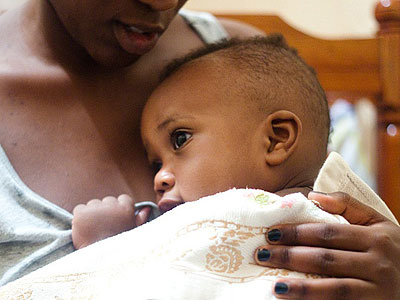Editor, For the last couple of years, Rwanda’s working class women and their advocates have used every possible medium to express their dissatisfaction to the labour code that only guarantees 100% paid maternity leave for the first six weeks for the uninsured mother, and 20% for six weeks after that.


Editor,
For the last couple of years, Rwanda’s working class women and their advocates have used every possible medium to express their dissatisfaction to the labour code that only guarantees 100% paid maternity leave for the first six weeks for the uninsured mother, and 20% for six weeks after that.
The idea behind the change from 12 weeks of fully paid leave to 6 weeks was that in order to make our women in the workforce as competitive as possible, the government would mitigate costs to investors and perhaps help promote Rwanda as an investment destination.
To do this, a maternity insurance fund would be set up which would pay 80% that a mother foregoes should she choose to take the entire 12-week leave.
Had this worked as planned, Rwanda would have made so many more lists that celebrate our trailblazing homegrown initiatives. Unfortunately, the bill was signed, and that was that.
With the stroke of a pen, our institutions obligations to child-bearing women was reduced by 40% over 12 weeks and of course, 5 years later, maternity insurance is nothing but a lovely dream we had long time ago.
For 4 years, this was a reality that only applied to the ladies in the private sector till last year when the General Statute for Public Service was revised too. This time around, there was no mention of insurance, the facts were laid out bare and bold, and I quote, "A female employee who gives birth shall be entitled to her full salary during the first six (6) weeks of maternity leave. She may return to work during the last six (6) weeks of maternity leave and be entitled to her full salary; otherwise she shall only get twenty per cent (20%) of her salary.”
So imagine my shock when the Minister for Justice, who was presenting to the Senate the "State of Sexual Violence against Women and Girls,” citing children raised by house-helpers, rather than their parents, as reason for the rise in the number of defilement cases.
It was during the same session that Senate Vice-President, Jeanne d’Arc Gakuba pointed out that a bigger problem than sexual violence against girls and women are male prostitutes who are picked by wealthy women despite the practice’s illegality.
While I’m sure she was simply attempting to highlight the little talked about issue and frankly rightly so, her choice of words seemed to undermine the kind of trauma our girls and women endure that in peaceful, democratic, prosperous Rwanda, no one should experience.
Our dearest senators and MPs, I believe the time has come to make a choice. If we need to go back to work 6 weeks after our babies are born, inevitably our children will be raised by house-helps.
I suppose, 6 extra weeks of fully paid leave may not make a huge difference, however, as all mothers know, the difference between 6 weeks and 3 months for a baby is huge.
Melissa Cyizere,Rwanda


